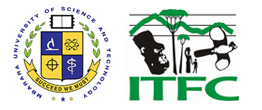People’s observations of climate change and its impacts, mediated by cultures and capacities, shape adaptive responses.
Different species occupy different niches in the web cycle of life.
Biodiversity is one of the fundamental properties of nature and a source of immense potential for economic use and yet the ecological functions per
The establishment of protected areas (PAs) is a central strategy for global biodiversity conservation.
Most animals follow distinct daily activity patterns reacting to their adaptations1, requirements, and interactions2-4.
Water plays a vital role in many aspects of sustaining life, including thermoregulation.
One of the most fundamental questions in ecology is how many species inhabit the Earth.
The structure of forest mammal communities appears surprisingly consistent across the continental tropics, presumably due to convergent evolution i
At Bwindi Impenetrable National Park (hereafter Bwindi), illegal activities often provide major challenges to park management.
In biodiversity hotspots, there is often tension between human needs and conservation, exacerbated when protected areas prevent access to natural r
Illegal resource access is a pressing biodiversity conservation and protected area management challenge.
Tropical forests are the most diverse and productive ecosystems on Earth.
The amount of food harvested, processed and stored by households determines food availability—a key dimension to food security.
This study was undertaken under the Greater Virunga Transboundary Collaboration (GVTC) involving three partner states of Democratic Republic of Con
The study was carried out under the Greater Virunga Transboundary Collaboration (GVTC) involving the Democratic Republic of Congo (DRC), Rwanda and
Sarambwe Nature Reserve (SNR) located in the Democratic Republic of Congo (DRC) is contiguous with Bwindi Impenetrable National Park (BINP) partly
